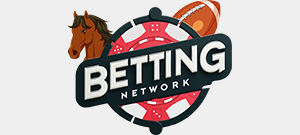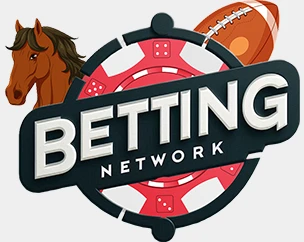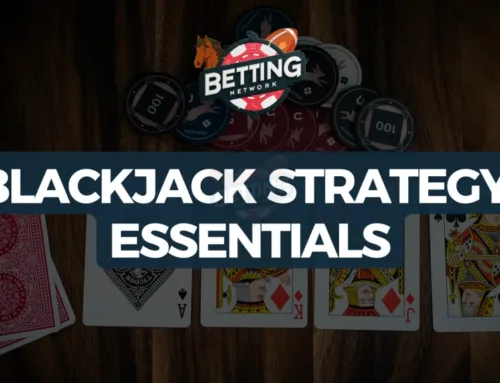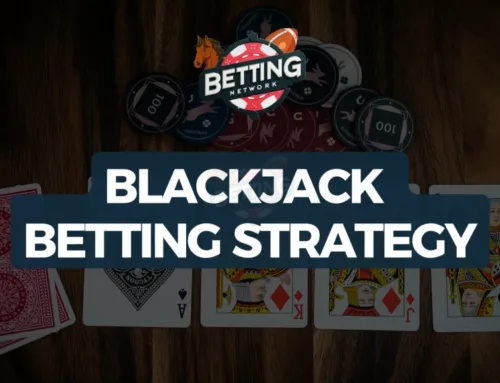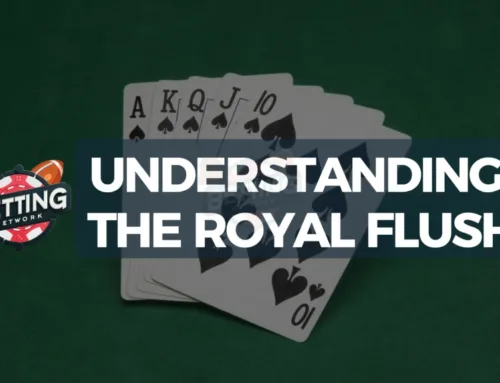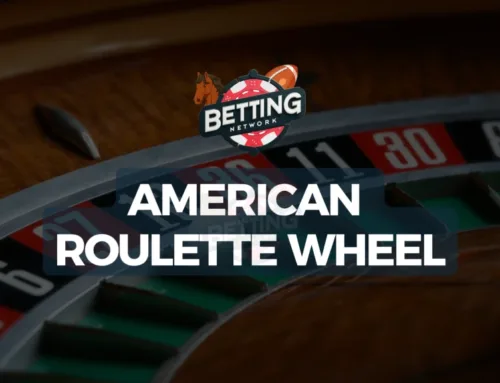Understanding the odds of winning roulette is the first step to becoming a pro roulette gambler. Each bet type (there are quite a few) has their own odds and payouts so it’s a crucial piece of knowledge you’ll constantly apply on each spin.
Today we’ll outline the most important bet types in roulette, their odds for both European and American roulette versions, potential payouts and handy examples that’ll help you understand all there is to know about the game.

Odds of Winning Roulette: The Basics
This is an essential step in learning how to play Roulette. Let’s start with defining each type of bet in Roulette, since that’ll help us associate the Odds of Winning Roulette with individual payouts.
| Type of Bet | Odds | Payout |
|---|---|---|
| Straight (or Single) | 1 in 37 (European) / 1 in 38 (American) | 35:1 |
| Split | 1 in 18.5 (European) / 1 in 19 (American) | 17:1 |
| Street | 1 in 12.3 (European) / 1 in 12.7 (American) | 11:1 |
| Corner (or Square) | 1 in 9.25 (European) / 1 in 9.5 (American) | 8:1 |
| Six Line (or Double Street) | 1 in 6.2 (European) / 1 in 6.3 (American) | 5:1 |
| Red or Black (Outside Bet) | Almost 1 in 2 | 1:1 |
| Even or Odd (Outside Bet) | Almost 1 in 2 | 1:1 |
| High (19-36) or Low (1-18) | Almost 1 in 2 | 1:1 |
Let’s also look at the differences between Inside and Outside bets:
| Type of Bet | Description |
|---|---|
| Inside Bets | Placed on specific numbers or combinations within the layout.
Offer higher payouts due to less likelihood of winning. Include bets such as straight, split, street, corner, and six line. |
| Outside Bets | Made on broader groups of numbers or colors.
Yield smaller payouts but have higher winning probabilities. Examples include bets on red or black, even or odd, and high (19-36) or low (1-18). |
Comparing Winning Odds: Blackjack, Poker, and American Roulette
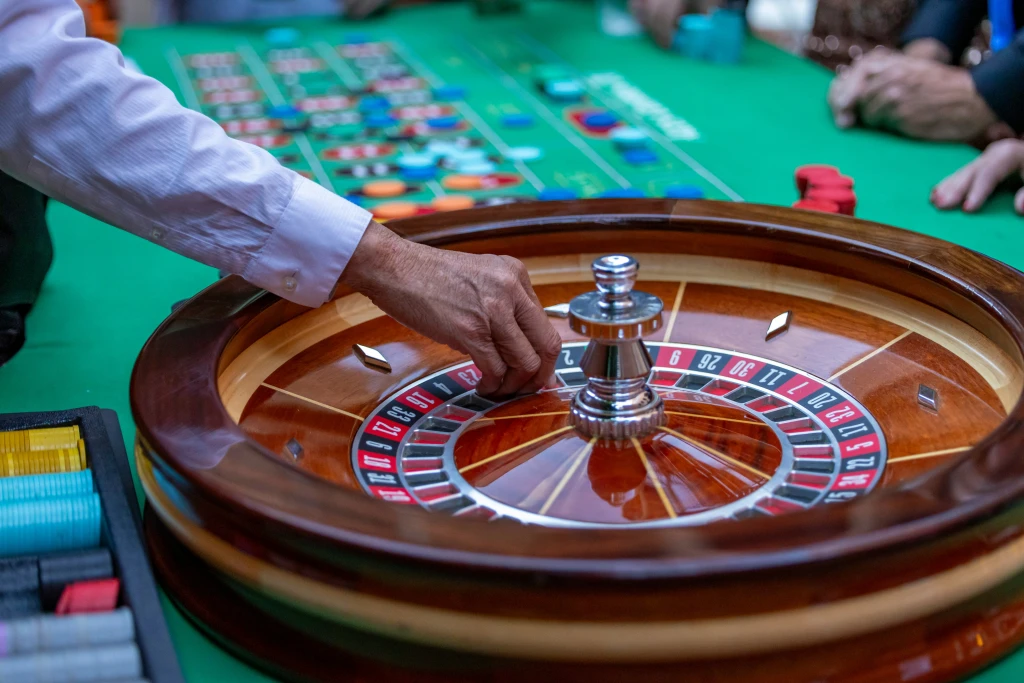
If you love casino games like Blackjack, Poker and American Roulette, you’ll probably want to know how these games compare in terms of odds. Knowing the odds of winning will also help you find the ideal game for your gambling style and earning potential.
Odds of Winning Blackjack
Players typically have a 42% to 49% chance of winning each hand in blackjack, influenced by the game rules and strategies used. That’s substantially different compared to the Odds of Winning Roulette.
Player Influence in Blackjack
Blackjack is heavily influenced by player skill and decisions: when to hit, stand, double down, or split can greatly enhance your winning potential. Luck will always be a factor in the casino, but if you want to include strategic control and clever tactics to wrestle some of luck’s control away, then Blackjack might be your thing.
Odds of Winning Poker (Texas Hold’em)
Poker odds fluctuate dramatically, hinging on the players’ skill levels and the unpredictability of the cards. If your strategy, knowledge and player reading skills are above average, you’ll have a notable edge over a lobby full of average players.
Player Influence in Poker (Texas Hold’em)
Poker has a tremendous psychological and mathematical factor to it. Calculating odds in real-time, making snappy strategic decisions and knowing how to read and bluff your opponent into submission are all critical factors.
You’ll still need good hands dealt to you, and score a game-changing card in the river, sure. But compared to the Odds of Winning Roulette, luck isn’t as prominent of a factor in poker.
Odds of Winning in American Roulette
The odds in American Roulette are fixed, with a house edge around 5.26%. For instance, a bet on a single number faces odds of 37 to 1, even though the true mathematical odds are 38 to 1 due to the 0 and 00 slots.
European Roulette is a bit different, because the payouts remain the same, but it has no 00 slot. This lowers the house edge to 2.70%.
Player Influence in American Roulette
In contrast to blackjack and poker, roulette is purely a game of luck. There are no strategies to alter the Odds of Winning Roulette, which are predetermined by the game’s design and the element of chance.
You can implement different gambling systems and strategies to help you bankroll. You can also calculate real-time odds for likely outcomes (based on recent results), but there’s no certainty behind these calculations, at best, theres likelihood. As always, gambling responsibly is the best safety net you can have.
Roulette is very straightforward, but it offers a lot of excitement. Some type of bets offer better odds at the expense of smaller payouts, and it’s an essential part of learning how to play roulette, especially if you want to make money off of it.
However, if you’re looking to incorporate skills into your winning odds, you’ll probably prefer Blackjack and Poker.
Beginner’s Guide to Choosing Your Casino Game:
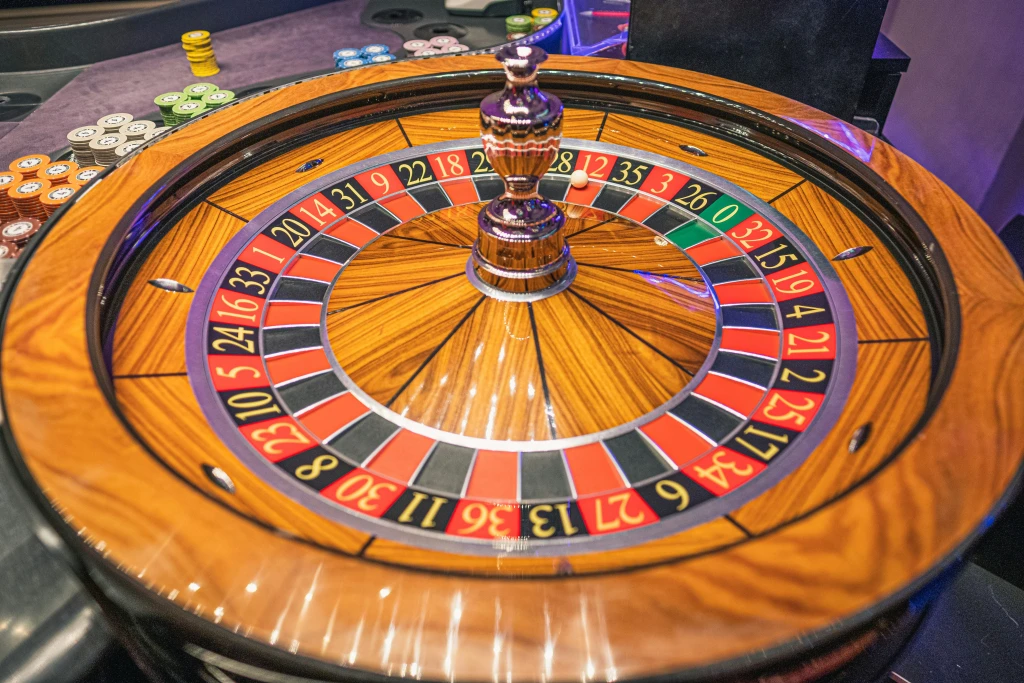
Blackjack for Beginners
With some of the highest odds of winning—between 42% and 49%—blackjack is fantastic if you enjoy games where your decisions really make a difference. Your ability to strategize effectively with choices like when to hit or stand can significantly swing the odds in your favor. We’ve written a few pieces about how to master this exciting casino game, so feel free to check them out!
Poker for Beginners
If you’re up for a challenge and relish the psychological aspect of gaming, poker is your go-to. It’s as much about playing your opponents as it is about playing the cards. If you’re all about reading the room, calculating odds and psychologically dominating your opponent, then Poker is perfect for you.
American Roulette for Beginners
For those who prefer a simpler, straightforward game, American Roulette is ideal. It’s a game of pure chance, with no strategies to learn or decisions to make that will affect the outcome. This makes it perfect for a fun, carefree gaming experience.
Developing the skills, strategy and psychological knowledge needed to master Poker and to a lesser extent Blackjack is incredibly time-consuming. If you’re looking for a game of pure chance with a smaller level of knowledge and strategy associated to it, then American Roulette is just right for you.
Why Beginners Might Favor American Roulette Over Others
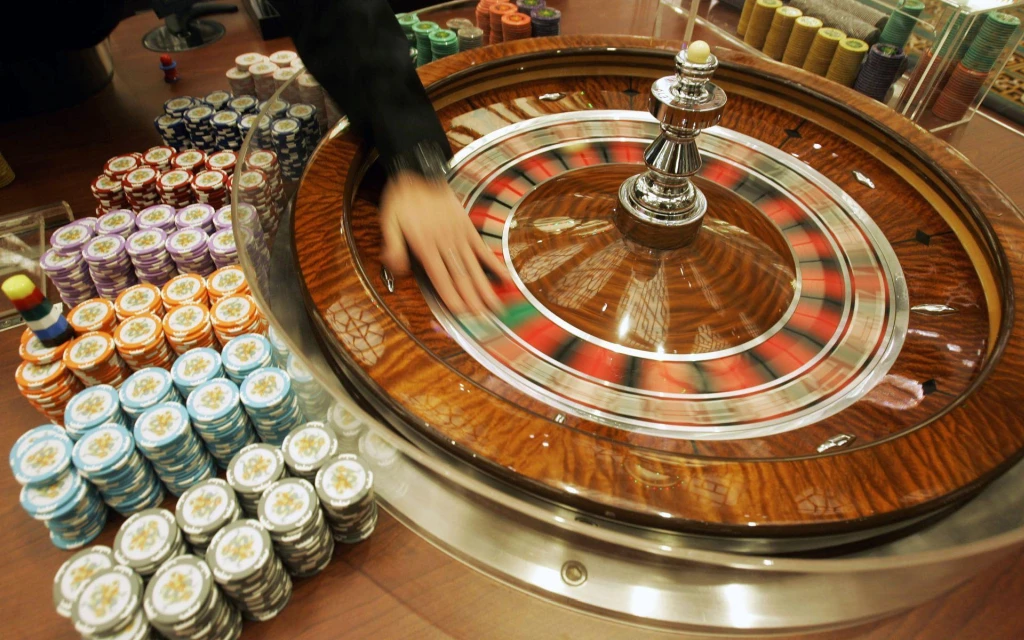
American Roulette, as luck-based as it is, does offer some advantages to beginners over other options. Here’s a breakdown of why American Roulette could be the go-to for those new to casino games and gambling.
Simplicity and Ease of Play
American Roulette is notably easier to grasp compared to the strategic complexities of Blackjack and Poker. Players simply pick a number, a color, or a set of numbers, place their bets, and watch the wheel spin. There’s no need to remember any card values or juggle advanced tactics.
You could (and should) know all the different types of bets and their associated odds, but memorizing all of this is still considerably easier than mastering Blackjack and Poker, with all of its intricacies. The learning curve is not nearly as steep, so it’s a fairly beginner-friendly game.
No Pressure from Competing Against Other Players
Poker comes with a heavy dose of psychological intensity, and the need to compete against others for their money. There’s bluffing, real-time odds and strategic calculations done on each hand dealt. It’s alot to handle, and gamblers who aren’t keen on that level of competitive play generally dislike poker.
Blackjack is mainly competing against the dealer, instead of many players. However, there is a subtle level of competition against other players at the table, since their decisions will influence the game’s dynamics and available cards. Blackjack will require next-level decision making from the player, and it’s not everyone’s cup of tea.
In contrast, American Roulette is purely about the individual’s game against the wheel. The outcome of one player’s bet doesn’t affect another, which eliminates direct competition and creates a more relaxed environment. This can be especially appealing for beginners who are looking for a low-pressure introduction to casino games and don’t want to get a master’s degree in maths and psychological warfare.
Equal Playing Field
One of the key appeals of American Roulette is that every player faces the same odds with each spin of the wheel. This contrasts sharply with Poker and Blackjack, where experienced players can dominate a lobby with average or new players and effectively farm them out of their money. Everyone is equal in each spin, and there’s a certain appeal to that.
Availability of Low-Stakes Options
Roulette often provides more low-stakes betting options compared to other table games. You can find minimal bets and even penny options for beginners that are looking to dip their toes into the casino experience without going broke. The low entry barrier is certainly more welcoming to players that want to have a good time.
Social and Entertaining
The environment around a roulette table is typically more relaxed and social. You can talk and joke around with others during spins and that makes for a more relaxed, chill experience overall. Compare that to the super tense and silent atmosphere that tends to rule over high-stakes poker games. Sometimes Poker games can get super tense if there’s a sore loser in the table too, which many would rather avoid altogether.
If you go on a Vegas trip with your buddies, taking a spin at the wheel is almost a must-have. Chances are you and your buddies aren’t expert Poker or Blackjack players, so not all of you are guaranteed to have a good time. The roulette, though? completely different ball game (pun intended). It’s just very casual, relaxed and has a low entry barrier, guaranteeing anyone can have a good time at it.
FAQs on the Odds of Winning at Roulette
1. What are the general odds of winning at roulette?
The odds of winning in roulette depend significantly on the type of bet placed and whether you are playing on an American or European roulette wheel. European roulette generally offers better odds to players because it has only one zero, compared to the American version which includes both a 0 and a 00 (Casino.org) (roulettepro.com).
2. What are the odds for outside bets like red/black or odd/even?
Outside bets such as red or black, odd or even, and high or low provide almost a 50/50 chance of winning. Specifically, the odds are approximately 48.6% on a European wheel and 47.4% on an American wheel due to the presence of the zero and double zero, which tip the odds slightly in favor of the house
3. What payouts can you expect from different types of bets?
The payouts in roulette also vary based on the type of bet:
Straight bets on a single number pay out at 35:1.
Split bets on two numbers offer a 17:1 payout.
Street bets, which cover three numbers, pay out at 11:1.
Corner bets on four numbers come with an 8:1 payout.
Line bets on six numbers provide a 5:1 payout.
These are considered inside bets and have lower winning probabilities but higher payouts compared to outside bets
4. How does the ‘house edge’ affect your odds?
The house edge is the advantage that the casino has over the players. In European roulette, the house edge is about 2.7%, mainly due to the single zero. In American roulette, the presence of an additional double zero increases the house edge to about 5.26%. This means that, over time, the casino expects to keep $2.7 of every $100 bet on a European wheel and $5.26 on an American wheel
5. Can employing a betting system improve your chances?
While no betting system can change the inherent odds of the game, systems like the Martingale or D’Alembert can help manage your bankroll and potentially maximize short-term winnings. However, it’s important to remember that these systems do not reduce the house edge and should be used with caution
Understanding the odds of winning roulette is the first step to becoming a pro roulette gambler. Each bet type (there are quite a few) has their own odds and payouts so it’s a crucial piece of knowledge you’ll constantly apply on each spin.
Today we’ll outline the most important bet types in roulette, their odds for both European and American roulette versions, potential payouts and handy examples that’ll help you understand all there is to know about the game.

Odds of Winning Roulette: The Basics
This is an essential step in learning how to play Roulette. Let’s start with defining each type of bet in Roulette, since that’ll help us associate the Odds of Winning Roulette with individual payouts.
| Type of Bet | Odds | Payout |
|---|---|---|
| Straight (or Single) | 1 in 37 (European) / 1 in 38 (American) | 35:1 |
| Split | 1 in 18.5 (European) / 1 in 19 (American) | 17:1 |
| Street | 1 in 12.3 (European) / 1 in 12.7 (American) | 11:1 |
| Corner (or Square) | 1 in 9.25 (European) / 1 in 9.5 (American) | 8:1 |
| Six Line (or Double Street) | 1 in 6.2 (European) / 1 in 6.3 (American) | 5:1 |
| Red or Black (Outside Bet) | Almost 1 in 2 | 1:1 |
| Even or Odd (Outside Bet) | Almost 1 in 2 | 1:1 |
| High (19-36) or Low (1-18) | Almost 1 in 2 | 1:1 |
Let’s also look at the differences between Inside and Outside bets:
| Type of Bet | Description |
|---|---|
| Inside Bets | Placed on specific numbers or combinations within the layout.
Offer higher payouts due to less likelihood of winning. Include bets such as straight, split, street, corner, and six line. |
| Outside Bets | Made on broader groups of numbers or colors.
Yield smaller payouts but have higher winning probabilities. Examples include bets on red or black, even or odd, and high (19-36) or low (1-18). |
Comparing Winning Odds: Blackjack, Poker, and American Roulette

If you love casino games like Blackjack, Poker and American Roulette, you’ll probably want to know how these games compare in terms of odds. Knowing the odds of winning will also help you find the ideal game for your gambling style and earning potential.
Odds of Winning Blackjack
Players typically have a 42% to 49% chance of winning each hand in blackjack, influenced by the game rules and strategies used. That’s substantially different compared to the Odds of Winning Roulette.
Player Influence in Blackjack
Blackjack is heavily influenced by player skill and decisions: when to hit, stand, double down, or split can greatly enhance your winning potential. Luck will always be a factor in the casino, but if you want to include strategic control and clever tactics to wrestle some of luck’s control away, then Blackjack might be your thing.
Odds of Winning Poker (Texas Hold’em)
Poker odds fluctuate dramatically, hinging on the players’ skill levels and the unpredictability of the cards. If your strategy, knowledge and player reading skills are above average, you’ll have a notable edge over a lobby full of average players.
Player Influence in Poker (Texas Hold’em)
Poker has a tremendous psychological and mathematical factor to it. Calculating odds in real-time, making snappy strategic decisions and knowing how to read and bluff your opponent into submission are all critical factors.
You’ll still need good hands dealt to you, and score a game-changing card in the river, sure. But compared to the Odds of Winning Roulette, luck isn’t as prominent of a factor in poker.
Odds of Winning in American Roulette
The odds in American Roulette are fixed, with a house edge around 5.26%. For instance, a bet on a single number faces odds of 37 to 1, even though the true mathematical odds are 38 to 1 due to the 0 and 00 slots.
European Roulette is a bit different, because the payouts remain the same, but it has no 00 slot. This lowers the house edge to 2.70%.
Player Influence in American Roulette
In contrast to blackjack and poker, roulette is purely a game of luck. There are no strategies to alter the Odds of Winning Roulette, which are predetermined by the game’s design and the element of chance.
You can implement different gambling systems and strategies to help you bankroll. You can also calculate real-time odds for likely outcomes (based on recent results), but there’s no certainty behind these calculations, at best, theres likelihood. As always, gambling responsibly is the best safety net you can have.
Roulette is very straightforward, but it offers a lot of excitement. Some type of bets offer better odds at the expense of smaller payouts, and it’s an essential part of learning how to play roulette, especially if you want to make money off of it.
However, if you’re looking to incorporate skills into your winning odds, you’ll probably prefer Blackjack and Poker.
Beginner’s Guide to Choosing Your Casino Game:

Blackjack for Beginners
With some of the highest odds of winning—between 42% and 49%—blackjack is fantastic if you enjoy games where your decisions really make a difference. Your ability to strategize effectively with choices like when to hit or stand can significantly swing the odds in your favor. We’ve written a few pieces about how to master this exciting casino game, so feel free to check them out!
Poker for Beginners
If you’re up for a challenge and relish the psychological aspect of gaming, poker is your go-to. It’s as much about playing your opponents as it is about playing the cards. If you’re all about reading the room, calculating odds and psychologically dominating your opponent, then Poker is perfect for you.
American Roulette for Beginners
For those who prefer a simpler, straightforward game, American Roulette is ideal. It’s a game of pure chance, with no strategies to learn or decisions to make that will affect the outcome. This makes it perfect for a fun, carefree gaming experience.
Developing the skills, strategy and psychological knowledge needed to master Poker and to a lesser extent Blackjack is incredibly time-consuming. If you’re looking for a game of pure chance with a smaller level of knowledge and strategy associated to it, then American Roulette is just right for you.
Why Beginners Might Favor American Roulette Over Others

American Roulette, as luck-based as it is, does offer some advantages to beginners over other options. Here’s a breakdown of why American Roulette could be the go-to for those new to casino games and gambling.
Simplicity and Ease of Play
American Roulette is notably easier to grasp compared to the strategic complexities of Blackjack and Poker. Players simply pick a number, a color, or a set of numbers, place their bets, and watch the wheel spin. There’s no need to remember any card values or juggle advanced tactics.
You could (and should) know all the different types of bets and their associated odds, but memorizing all of this is still considerably easier than mastering Blackjack and Poker, with all of its intricacies. The learning curve is not nearly as steep, so it’s a fairly beginner-friendly game.
No Pressure from Competing Against Other Players
Poker comes with a heavy dose of psychological intensity, and the need to compete against others for their money. There’s bluffing, real-time odds and strategic calculations done on each hand dealt. It’s alot to handle, and gamblers who aren’t keen on that level of competitive play generally dislike poker.
Blackjack is mainly competing against the dealer, instead of many players. However, there is a subtle level of competition against other players at the table, since their decisions will influence the game’s dynamics and available cards. Blackjack will require next-level decision making from the player, and it’s not everyone’s cup of tea.
In contrast, American Roulette is purely about the individual’s game against the wheel. The outcome of one player’s bet doesn’t affect another, which eliminates direct competition and creates a more relaxed environment. This can be especially appealing for beginners who are looking for a low-pressure introduction to casino games and don’t want to get a master’s degree in maths and psychological warfare.
Equal Playing Field
One of the key appeals of American Roulette is that every player faces the same odds with each spin of the wheel. This contrasts sharply with Poker and Blackjack, where experienced players can dominate a lobby with average or new players and effectively farm them out of their money. Everyone is equal in each spin, and there’s a certain appeal to that.
Availability of Low-Stakes Options
Roulette often provides more low-stakes betting options compared to other table games. You can find minimal bets and even penny options for beginners that are looking to dip their toes into the casino experience without going broke. The low entry barrier is certainly more welcoming to players that want to have a good time.
Social and Entertaining
The environment around a roulette table is typically more relaxed and social. You can talk and joke around with others during spins and that makes for a more relaxed, chill experience overall. Compare that to the super tense and silent atmosphere that tends to rule over high-stakes poker games. Sometimes Poker games can get super tense if there’s a sore loser in the table too, which many would rather avoid altogether.
If you go on a Vegas trip with your buddies, taking a spin at the wheel is almost a must-have. Chances are you and your buddies aren’t expert Poker or Blackjack players, so not all of you are guaranteed to have a good time. The roulette, though? completely different ball game (pun intended). It’s just very casual, relaxed and has a low entry barrier, guaranteeing anyone can have a good time at it.
FAQs on the Odds of Winning at Roulette
1. What are the general odds of winning at roulette?
The odds of winning in roulette depend significantly on the type of bet placed and whether you are playing on an American or European roulette wheel. European roulette generally offers better odds to players because it has only one zero, compared to the American version which includes both a 0 and a 00 (Casino.org) (roulettepro.com).
2. What are the odds for outside bets like red/black or odd/even?
Outside bets such as red or black, odd or even, and high or low provide almost a 50/50 chance of winning. Specifically, the odds are approximately 48.6% on a European wheel and 47.4% on an American wheel due to the presence of the zero and double zero, which tip the odds slightly in favor of the house
3. What payouts can you expect from different types of bets?
The payouts in roulette also vary based on the type of bet:
Straight bets on a single number pay out at 35:1.
Split bets on two numbers offer a 17:1 payout.
Street bets, which cover three numbers, pay out at 11:1.
Corner bets on four numbers come with an 8:1 payout.
Line bets on six numbers provide a 5:1 payout.
These are considered inside bets and have lower winning probabilities but higher payouts compared to outside bets
4. How does the ‘house edge’ affect your odds?
The house edge is the advantage that the casino has over the players. In European roulette, the house edge is about 2.7%, mainly due to the single zero. In American roulette, the presence of an additional double zero increases the house edge to about 5.26%. This means that, over time, the casino expects to keep $2.7 of every $100 bet on a European wheel and $5.26 on an American wheel
5. Can employing a betting system improve your chances?
While no betting system can change the inherent odds of the game, systems like the Martingale or D’Alembert can help manage your bankroll and potentially maximize short-term winnings. However, it’s important to remember that these systems do not reduce the house edge and should be used with caution
Understanding the odds of winning roulette is the first step to becoming a pro roulette gambler. Each bet type (there are quite a few) has their own odds and payouts so it’s a crucial piece of knowledge you’ll constantly apply on each spin.
Today we’ll outline the most important bet types in roulette, their odds for both European and American roulette versions, potential payouts and handy examples that’ll help you understand all there is to know about the game.

Odds of Winning Roulette: The Basics
This is an essential step in learning how to play Roulette. Let’s start with defining each type of bet in Roulette, since that’ll help us associate the Odds of Winning Roulette with individual payouts.
| Type of Bet | Odds | Payout |
|---|---|---|
| Straight (or Single) | 1 in 37 (European) / 1 in 38 (American) | 35:1 |
| Split | 1 in 18.5 (European) / 1 in 19 (American) | 17:1 |
| Street | 1 in 12.3 (European) / 1 in 12.7 (American) | 11:1 |
| Corner (or Square) | 1 in 9.25 (European) / 1 in 9.5 (American) | 8:1 |
| Six Line (or Double Street) | 1 in 6.2 (European) / 1 in 6.3 (American) | 5:1 |
| Red or Black (Outside Bet) | Almost 1 in 2 | 1:1 |
| Even or Odd (Outside Bet) | Almost 1 in 2 | 1:1 |
| High (19-36) or Low (1-18) | Almost 1 in 2 | 1:1 |
Let’s also look at the differences between Inside and Outside bets:
| Type of Bet | Description |
|---|---|
| Inside Bets | Placed on specific numbers or combinations within the layout.
Offer higher payouts due to less likelihood of winning. Include bets such as straight, split, street, corner, and six line. |
| Outside Bets | Made on broader groups of numbers or colors.
Yield smaller payouts but have higher winning probabilities. Examples include bets on red or black, even or odd, and high (19-36) or low (1-18). |
Comparing Winning Odds: Blackjack, Poker, and American Roulette

If you love casino games like Blackjack, Poker and American Roulette, you’ll probably want to know how these games compare in terms of odds. Knowing the odds of winning will also help you find the ideal game for your gambling style and earning potential.
Odds of Winning Blackjack
Players typically have a 42% to 49% chance of winning each hand in blackjack, influenced by the game rules and strategies used. That’s substantially different compared to the Odds of Winning Roulette.
Player Influence in Blackjack
Blackjack is heavily influenced by player skill and decisions: when to hit, stand, double down, or split can greatly enhance your winning potential. Luck will always be a factor in the casino, but if you want to include strategic control and clever tactics to wrestle some of luck’s control away, then Blackjack might be your thing.
Odds of Winning Poker (Texas Hold’em)
Poker odds fluctuate dramatically, hinging on the players’ skill levels and the unpredictability of the cards. If your strategy, knowledge and player reading skills are above average, you’ll have a notable edge over a lobby full of average players.
Player Influence in Poker (Texas Hold’em)
Poker has a tremendous psychological and mathematical factor to it. Calculating odds in real-time, making snappy strategic decisions and knowing how to read and bluff your opponent into submission are all critical factors.
You’ll still need good hands dealt to you, and score a game-changing card in the river, sure. But compared to the Odds of Winning Roulette, luck isn’t as prominent of a factor in poker.
Odds of Winning in American Roulette
The odds in American Roulette are fixed, with a house edge around 5.26%. For instance, a bet on a single number faces odds of 37 to 1, even though the true mathematical odds are 38 to 1 due to the 0 and 00 slots.
European Roulette is a bit different, because the payouts remain the same, but it has no 00 slot. This lowers the house edge to 2.70%.
Player Influence in American Roulette
In contrast to blackjack and poker, roulette is purely a game of luck. There are no strategies to alter the Odds of Winning Roulette, which are predetermined by the game’s design and the element of chance.
You can implement different gambling systems and strategies to help you bankroll. You can also calculate real-time odds for likely outcomes (based on recent results), but there’s no certainty behind these calculations, at best, theres likelihood. As always, gambling responsibly is the best safety net you can have.
Roulette is very straightforward, but it offers a lot of excitement. Some type of bets offer better odds at the expense of smaller payouts, and it’s an essential part of learning how to play roulette, especially if you want to make money off of it.
However, if you’re looking to incorporate skills into your winning odds, you’ll probably prefer Blackjack and Poker.
Beginner’s Guide to Choosing Your Casino Game:

Blackjack for Beginners
With some of the highest odds of winning—between 42% and 49%—blackjack is fantastic if you enjoy games where your decisions really make a difference. Your ability to strategize effectively with choices like when to hit or stand can significantly swing the odds in your favor. We’ve written a few pieces about how to master this exciting casino game, so feel free to check them out!
Poker for Beginners
If you’re up for a challenge and relish the psychological aspect of gaming, poker is your go-to. It’s as much about playing your opponents as it is about playing the cards. If you’re all about reading the room, calculating odds and psychologically dominating your opponent, then Poker is perfect for you.
American Roulette for Beginners
For those who prefer a simpler, straightforward game, American Roulette is ideal. It’s a game of pure chance, with no strategies to learn or decisions to make that will affect the outcome. This makes it perfect for a fun, carefree gaming experience.
Developing the skills, strategy and psychological knowledge needed to master Poker and to a lesser extent Blackjack is incredibly time-consuming. If you’re looking for a game of pure chance with a smaller level of knowledge and strategy associated to it, then American Roulette is just right for you.
Why Beginners Might Favor American Roulette Over Others

American Roulette, as luck-based as it is, does offer some advantages to beginners over other options. Here’s a breakdown of why American Roulette could be the go-to for those new to casino games and gambling.
Simplicity and Ease of Play
American Roulette is notably easier to grasp compared to the strategic complexities of Blackjack and Poker. Players simply pick a number, a color, or a set of numbers, place their bets, and watch the wheel spin. There’s no need to remember any card values or juggle advanced tactics.
You could (and should) know all the different types of bets and their associated odds, but memorizing all of this is still considerably easier than mastering Blackjack and Poker, with all of its intricacies. The learning curve is not nearly as steep, so it’s a fairly beginner-friendly game.
No Pressure from Competing Against Other Players
Poker comes with a heavy dose of psychological intensity, and the need to compete against others for their money. There’s bluffing, real-time odds and strategic calculations done on each hand dealt. It’s alot to handle, and gamblers who aren’t keen on that level of competitive play generally dislike poker.
Blackjack is mainly competing against the dealer, instead of many players. However, there is a subtle level of competition against other players at the table, since their decisions will influence the game’s dynamics and available cards. Blackjack will require next-level decision making from the player, and it’s not everyone’s cup of tea.
In contrast, American Roulette is purely about the individual’s game against the wheel. The outcome of one player’s bet doesn’t affect another, which eliminates direct competition and creates a more relaxed environment. This can be especially appealing for beginners who are looking for a low-pressure introduction to casino games and don’t want to get a master’s degree in maths and psychological warfare.
Equal Playing Field
One of the key appeals of American Roulette is that every player faces the same odds with each spin of the wheel. This contrasts sharply with Poker and Blackjack, where experienced players can dominate a lobby with average or new players and effectively farm them out of their money. Everyone is equal in each spin, and there’s a certain appeal to that.
Availability of Low-Stakes Options
Roulette often provides more low-stakes betting options compared to other table games. You can find minimal bets and even penny options for beginners that are looking to dip their toes into the casino experience without going broke. The low entry barrier is certainly more welcoming to players that want to have a good time.
Social and Entertaining
The environment around a roulette table is typically more relaxed and social. You can talk and joke around with others during spins and that makes for a more relaxed, chill experience overall. Compare that to the super tense and silent atmosphere that tends to rule over high-stakes poker games. Sometimes Poker games can get super tense if there’s a sore loser in the table too, which many would rather avoid altogether.
If you go on a Vegas trip with your buddies, taking a spin at the wheel is almost a must-have. Chances are you and your buddies aren’t expert Poker or Blackjack players, so not all of you are guaranteed to have a good time. The roulette, though? completely different ball game (pun intended). It’s just very casual, relaxed and has a low entry barrier, guaranteeing anyone can have a good time at it.
FAQs on the Odds of Winning at Roulette
1. What are the general odds of winning at roulette?
The odds of winning in roulette depend significantly on the type of bet placed and whether you are playing on an American or European roulette wheel. European roulette generally offers better odds to players because it has only one zero, compared to the American version which includes both a 0 and a 00 (Casino.org) (roulettepro.com).
2. What are the odds for outside bets like red/black or odd/even?
Outside bets such as red or black, odd or even, and high or low provide almost a 50/50 chance of winning. Specifically, the odds are approximately 48.6% on a European wheel and 47.4% on an American wheel due to the presence of the zero and double zero, which tip the odds slightly in favor of the house
3. What payouts can you expect from different types of bets?
The payouts in roulette also vary based on the type of bet:
Straight bets on a single number pay out at 35:1.
Split bets on two numbers offer a 17:1 payout.
Street bets, which cover three numbers, pay out at 11:1.
Corner bets on four numbers come with an 8:1 payout.
Line bets on six numbers provide a 5:1 payout.
These are considered inside bets and have lower winning probabilities but higher payouts compared to outside bets
4. How does the ‘house edge’ affect your odds?
The house edge is the advantage that the casino has over the players. In European roulette, the house edge is about 2.7%, mainly due to the single zero. In American roulette, the presence of an additional double zero increases the house edge to about 5.26%. This means that, over time, the casino expects to keep $2.7 of every $100 bet on a European wheel and $5.26 on an American wheel
5. Can employing a betting system improve your chances?
While no betting system can change the inherent odds of the game, systems like the Martingale or D’Alembert can help manage your bankroll and potentially maximize short-term winnings. However, it’s important to remember that these systems do not reduce the house edge and should be used with caution
Understanding the odds of winning roulette is the first step to becoming a pro roulette gambler. Each bet type (there are quite a few) has their own odds and payouts so it’s a crucial piece of knowledge you’ll constantly apply on each spin.
Today we’ll outline the most important bet types in roulette, their odds for both European and American roulette versions, potential payouts and handy examples that’ll help you understand all there is to know about the game.

Odds of Winning Roulette: The Basics
This is an essential step in learning how to play Roulette. Let’s start with defining each type of bet in Roulette, since that’ll help us associate the Odds of Winning Roulette with individual payouts.
| Type of Bet | Odds | Payout |
|---|---|---|
| Straight (or Single) | 1 in 37 (European) / 1 in 38 (American) | 35:1 |
| Split | 1 in 18.5 (European) / 1 in 19 (American) | 17:1 |
| Street | 1 in 12.3 (European) / 1 in 12.7 (American) | 11:1 |
| Corner (or Square) | 1 in 9.25 (European) / 1 in 9.5 (American) | 8:1 |
| Six Line (or Double Street) | 1 in 6.2 (European) / 1 in 6.3 (American) | 5:1 |
| Red or Black (Outside Bet) | Almost 1 in 2 | 1:1 |
| Even or Odd (Outside Bet) | Almost 1 in 2 | 1:1 |
| High (19-36) or Low (1-18) | Almost 1 in 2 | 1:1 |
Let’s also look at the differences between Inside and Outside bets:
| Type of Bet | Description |
|---|---|
| Inside Bets | Placed on specific numbers or combinations within the layout.
Offer higher payouts due to less likelihood of winning. Include bets such as straight, split, street, corner, and six line. |
| Outside Bets | Made on broader groups of numbers or colors.
Yield smaller payouts but have higher winning probabilities. Examples include bets on red or black, even or odd, and high (19-36) or low (1-18). |
Comparing Winning Odds: Blackjack, Poker, and American Roulette

If you love casino games like Blackjack, Poker and American Roulette, you’ll probably want to know how these games compare in terms of odds. Knowing the odds of winning will also help you find the ideal game for your gambling style and earning potential.
Odds of Winning Blackjack
Players typically have a 42% to 49% chance of winning each hand in blackjack, influenced by the game rules and strategies used. That’s substantially different compared to the Odds of Winning Roulette.
Player Influence in Blackjack
Blackjack is heavily influenced by player skill and decisions: when to hit, stand, double down, or split can greatly enhance your winning potential. Luck will always be a factor in the casino, but if you want to include strategic control and clever tactics to wrestle some of luck’s control away, then Blackjack might be your thing.
Odds of Winning Poker (Texas Hold’em)
Poker odds fluctuate dramatically, hinging on the players’ skill levels and the unpredictability of the cards. If your strategy, knowledge and player reading skills are above average, you’ll have a notable edge over a lobby full of average players.
Player Influence in Poker (Texas Hold’em)
Poker has a tremendous psychological and mathematical factor to it. Calculating odds in real-time, making snappy strategic decisions and knowing how to read and bluff your opponent into submission are all critical factors.
You’ll still need good hands dealt to you, and score a game-changing card in the river, sure. But compared to the Odds of Winning Roulette, luck isn’t as prominent of a factor in poker.
Odds of Winning in American Roulette
The odds in American Roulette are fixed, with a house edge around 5.26%. For instance, a bet on a single number faces odds of 37 to 1, even though the true mathematical odds are 38 to 1 due to the 0 and 00 slots.
European Roulette is a bit different, because the payouts remain the same, but it has no 00 slot. This lowers the house edge to 2.70%.
Player Influence in American Roulette
In contrast to blackjack and poker, roulette is purely a game of luck. There are no strategies to alter the Odds of Winning Roulette, which are predetermined by the game’s design and the element of chance.
You can implement different gambling systems and strategies to help you bankroll. You can also calculate real-time odds for likely outcomes (based on recent results), but there’s no certainty behind these calculations, at best, theres likelihood. As always, gambling responsibly is the best safety net you can have.
Roulette is very straightforward, but it offers a lot of excitement. Some type of bets offer better odds at the expense of smaller payouts, and it’s an essential part of learning how to play roulette, especially if you want to make money off of it.
However, if you’re looking to incorporate skills into your winning odds, you’ll probably prefer Blackjack and Poker.
Beginner’s Guide to Choosing Your Casino Game:

Blackjack for Beginners
With some of the highest odds of winning—between 42% and 49%—blackjack is fantastic if you enjoy games where your decisions really make a difference. Your ability to strategize effectively with choices like when to hit or stand can significantly swing the odds in your favor. We’ve written a few pieces about how to master this exciting casino game, so feel free to check them out!
Poker for Beginners
If you’re up for a challenge and relish the psychological aspect of gaming, poker is your go-to. It’s as much about playing your opponents as it is about playing the cards. If you’re all about reading the room, calculating odds and psychologically dominating your opponent, then Poker is perfect for you.
American Roulette for Beginners
For those who prefer a simpler, straightforward game, American Roulette is ideal. It’s a game of pure chance, with no strategies to learn or decisions to make that will affect the outcome. This makes it perfect for a fun, carefree gaming experience.
Developing the skills, strategy and psychological knowledge needed to master Poker and to a lesser extent Blackjack is incredibly time-consuming. If you’re looking for a game of pure chance with a smaller level of knowledge and strategy associated to it, then American Roulette is just right for you.
Why Beginners Might Favor American Roulette Over Others

American Roulette, as luck-based as it is, does offer some advantages to beginners over other options. Here’s a breakdown of why American Roulette could be the go-to for those new to casino games and gambling.
Simplicity and Ease of Play
American Roulette is notably easier to grasp compared to the strategic complexities of Blackjack and Poker. Players simply pick a number, a color, or a set of numbers, place their bets, and watch the wheel spin. There’s no need to remember any card values or juggle advanced tactics.
You could (and should) know all the different types of bets and their associated odds, but memorizing all of this is still considerably easier than mastering Blackjack and Poker, with all of its intricacies. The learning curve is not nearly as steep, so it’s a fairly beginner-friendly game.
No Pressure from Competing Against Other Players
Poker comes with a heavy dose of psychological intensity, and the need to compete against others for their money. There’s bluffing, real-time odds and strategic calculations done on each hand dealt. It’s alot to handle, and gamblers who aren’t keen on that level of competitive play generally dislike poker.
Blackjack is mainly competing against the dealer, instead of many players. However, there is a subtle level of competition against other players at the table, since their decisions will influence the game’s dynamics and available cards. Blackjack will require next-level decision making from the player, and it’s not everyone’s cup of tea.
In contrast, American Roulette is purely about the individual’s game against the wheel. The outcome of one player’s bet doesn’t affect another, which eliminates direct competition and creates a more relaxed environment. This can be especially appealing for beginners who are looking for a low-pressure introduction to casino games and don’t want to get a master’s degree in maths and psychological warfare.
Equal Playing Field
One of the key appeals of American Roulette is that every player faces the same odds with each spin of the wheel. This contrasts sharply with Poker and Blackjack, where experienced players can dominate a lobby with average or new players and effectively farm them out of their money. Everyone is equal in each spin, and there’s a certain appeal to that.
Availability of Low-Stakes Options
Roulette often provides more low-stakes betting options compared to other table games. You can find minimal bets and even penny options for beginners that are looking to dip their toes into the casino experience without going broke. The low entry barrier is certainly more welcoming to players that want to have a good time.
Social and Entertaining
The environment around a roulette table is typically more relaxed and social. You can talk and joke around with others during spins and that makes for a more relaxed, chill experience overall. Compare that to the super tense and silent atmosphere that tends to rule over high-stakes poker games. Sometimes Poker games can get super tense if there’s a sore loser in the table too, which many would rather avoid altogether.
If you go on a Vegas trip with your buddies, taking a spin at the wheel is almost a must-have. Chances are you and your buddies aren’t expert Poker or Blackjack players, so not all of you are guaranteed to have a good time. The roulette, though? completely different ball game (pun intended). It’s just very casual, relaxed and has a low entry barrier, guaranteeing anyone can have a good time at it.
FAQs on the Odds of Winning at Roulette
1. What are the general odds of winning at roulette?
The odds of winning in roulette depend significantly on the type of bet placed and whether you are playing on an American or European roulette wheel. European roulette generally offers better odds to players because it has only one zero, compared to the American version which includes both a 0 and a 00 (Casino.org) (roulettepro.com).
2. What are the odds for outside bets like red/black or odd/even?
Outside bets such as red or black, odd or even, and high or low provide almost a 50/50 chance of winning. Specifically, the odds are approximately 48.6% on a European wheel and 47.4% on an American wheel due to the presence of the zero and double zero, which tip the odds slightly in favor of the house
3. What payouts can you expect from different types of bets?
The payouts in roulette also vary based on the type of bet:
Straight bets on a single number pay out at 35:1.
Split bets on two numbers offer a 17:1 payout.
Street bets, which cover three numbers, pay out at 11:1.
Corner bets on four numbers come with an 8:1 payout.
Line bets on six numbers provide a 5:1 payout.
These are considered inside bets and have lower winning probabilities but higher payouts compared to outside bets
4. How does the ‘house edge’ affect your odds?
The house edge is the advantage that the casino has over the players. In European roulette, the house edge is about 2.7%, mainly due to the single zero. In American roulette, the presence of an additional double zero increases the house edge to about 5.26%. This means that, over time, the casino expects to keep $2.7 of every $100 bet on a European wheel and $5.26 on an American wheel
5. Can employing a betting system improve your chances?
While no betting system can change the inherent odds of the game, systems like the Martingale or D’Alembert can help manage your bankroll and potentially maximize short-term winnings. However, it’s important to remember that these systems do not reduce the house edge and should be used with caution
